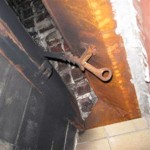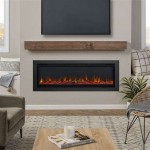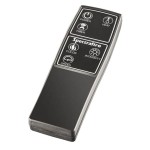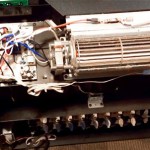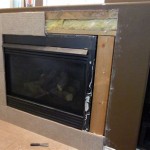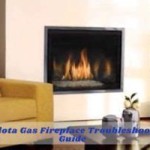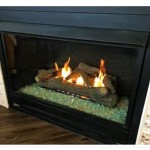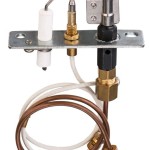Essential Aspects of Gas Fireplace Massachusetts Code
Installing a gas fireplace can be a great way to add warmth and comfort to your home. The gas fireplace Massachusetts code outlined in 527 CMR 11 outlines specific requirements and guidelines intended to ensure the safe installation and operation of gas fireplaces. Understanding these requirements is crucial for homeowners and contractors alike. This guide will provide an overview of the essential aspects of the gas fireplace Massachusetts code, outlining the key provisions and safety measures you need to know.
Appliance Regulations
The gas fireplace Massachusetts code includes regulations specific to gas-fired appliances, such as fireplaces and stoves. These regulations cover various aspects, including:
- Appliance Testing and Listing: Gas fireplaces must be tested and listed by a nationally recognized testing laboratory (NRTL) to ensure they meet safety standards.
- Appliance Installation: Fireplaces must be installed according to the manufacturer's instructions and relevant codes, including proper clearances to combustible materials and adequate ventilation.
- Gas Supply: The gas supply must be from a licensed fuel gas supplier and meet specific pressure and flow rate requirements.
Chimney and Venting Systems
Proper venting is essential for safe and efficient operation of gas fireplaces. The Massachusetts code establishes requirements for chimney and venting systems to ensure adequate exhaust of combustion gases:
- Chimney Construction: Chimneys must be constructed of approved materials, such as stainless steel or masonry, and sized appropriately for the appliance.
- Chimney Height: Chimneys must extend a minimum height above the roof and surrounding structures to prevent downdrafts and ensure proper exhaust.
- Venting Types: Approved venting systems include single-wall metal pipes, double-wall metal pipes, and masonry chimneys lined with approved materials.
Gas Piping and Controls
The code also regulates the installation and operation of gas piping and controls to ensure the safe delivery of fuel to the fireplace:
- Gas Piping: Gas piping must be installed by a licensed plumber and conform to applicable codes, including proper sizing and type of piping.
- Gas Shut-Off Valves: Manual gas shut-off valves must be installed in accessible locations to allow for quick isolation of the gas supply in case of emergencies.
- Gas Pressure Regulators: Regulators are required to maintain the correct gas pressure for optimal appliance performance and safety.
Electrical Requirements
Gas fireplaces may require electrical power for ignition, controls, or other features. The code specifies electrical requirements to ensure safe operation and prevent electrical hazards:
- Electrical Wiring: Electrical wiring must be installed by a licensed electrician and conform to applicable electrical codes.
- Grounding: All electrical components must be properly grounded to prevent electrical shock.
- Electrical Isolation: Electrical components must be isolated from combustible materials to prevent ignition hazards.
Inspection and Maintenance
Regular inspection and maintenance are essential to ensure the ongoing safe and efficient operation of gas fireplaces. The code outlines specific requirements for inspection and maintenance:
- Annual Inspection: It is recommended to have a qualified professional inspect the fireplace annually, including checking for proper operation, gas leaks, and chimney cleanliness.
- Chimney Cleaning: Chimneys should be cleaned periodically, as specified by the manufacturer or prevailing codes, to remove soot and debris that could cause blockages or fires.
- Maintenance Records: Maintaining records of inspections and maintenance is important for documentation and future reference.
Permitting and Inspection
In Massachusetts, a building permit and inspection may be required for the installation of a gas fireplace. The specific requirements vary depending on the municipality. It is always advisable to contact the local building department for guidance and to obtain the necessary permits prior to commencing installation.
By adhering to the gas fireplace Massachusetts code and following these guidelines, homeowners can ensure the safe and compliant installation and operation of their gas fireplaces. Understanding the requirements and seeking professional guidance when needed can help prevent accidents and maintain a comfortable and enjoyable indoor environment.
Chapter 11 Fireplaces Massachusetts Chimneys Vents And Solid Fuel Burning Appliances Code 2024 Upcodes

Chapter 10 Chimneys And Fireplaces Massachusetts Residential Code 2024 Upcodes

Chapter 11 Fireplaces Massachusetts Chimneys Vents And Solid Fuel Burning Appliances Code 2024 Upcodes

Chapter 11 Fireplaces Massachusetts Chimneys Vents And Solid Fuel Burning Appliances Code 2024 Upcodes

Chapter 24 Fuel Gas Massachusetts Residential Code 2024 Upcodes

Chapter 10 Chimneys And Fireplaces Massachusetts Residential Code 2024 Upcodes

Chapter 24 Fuel Gas Massachusetts Residential Code 2024 Upcodes
Chapter 10 Chimneys And Fireplaces

Fireplace Hearth Extension Rules Structure Tech Home Inspections

2024 International Residential Code Irc Chapter 10 Chimneys And Fireplaces R1001 1 General
Related Posts

